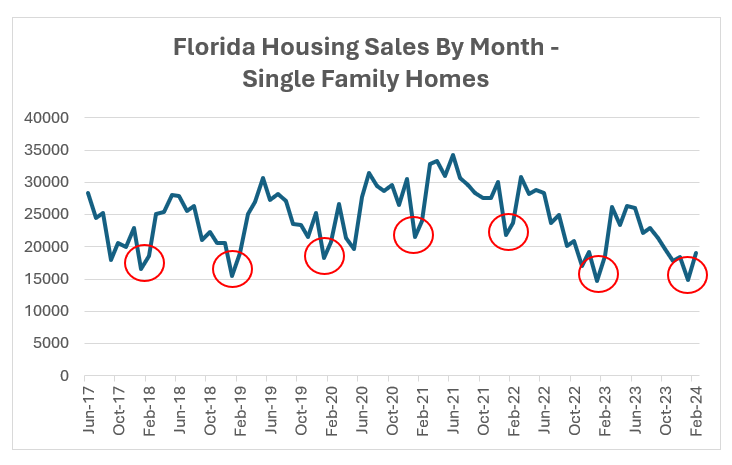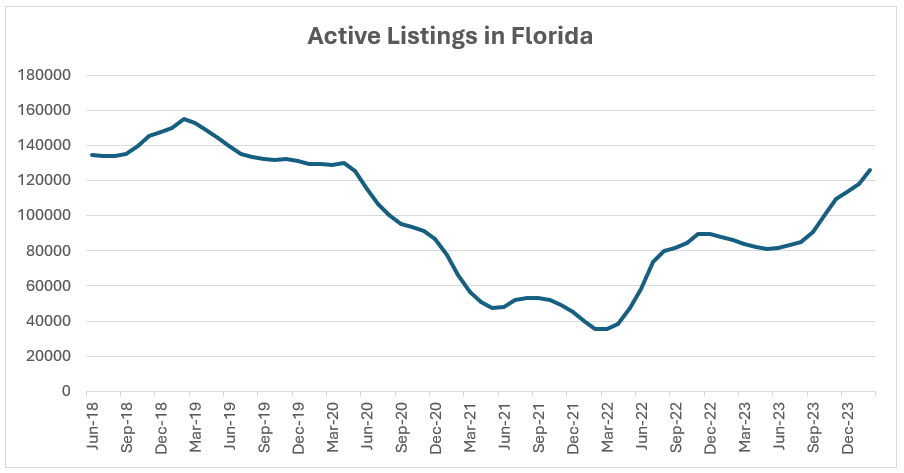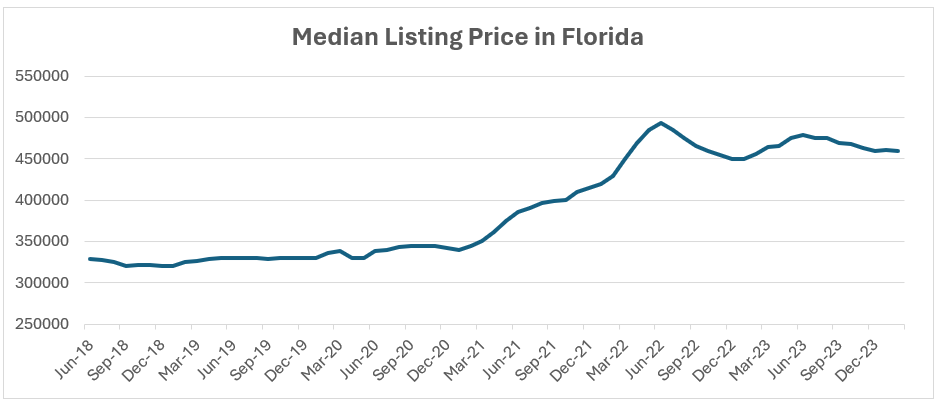Is Florida’s Housing Market in Trouble? The Difference Between Headlines and Analysis
By: Kyle Baltuch, Executive Vice President, Florida Chamber Foundation
Over the past month or so, a number of inflammatory headlines have sparked a conversation throughout Florida. Is Florida’s housing market in trouble?
Here’s the problem with these headlines. They lack context, rely on seemingly short-sighted analysis, and ultimately jump to a conclusion that may not be correct.
These articles paint a picture of a weakening housing market, relying primarily on a couple of distinct points:
- The number of homes being sold in Florida has fallen dramatically over the past year, and
- The number of homes for sale (active listings/inventory) has increased dramatically over the past year.
Those two statements are somewhat true in a vacuum, but even then, they require some additional context and background.
So, to uncover the real story behind Florida’s housing market, let’s review the two statements above and, ultimately, take a look at the housing market in Florida today compared to historical trends.
Statement 1: The Number of Homes Being Sold in Florida is Declining
The statements above and other commentary in the media point to a few recent data points that suggest home sales in Florida are trending downward. Specifically, they point to declines at the beginning of the year as significant proof of this narrative. Here’s the problem: housing sales in Florida (and most of the country) typically experience a decline at the beginning of each year.

The reasons for the decline in sales vary depending on who you ask but are most frequently attributed to the holiday season. With typical closing windows ranging from 30-90 days, the slowdown in showings and ultimately deal making during the holiday season are usually noted in the dips in sales experienced in January and February each year.[1]
The decline in condo sales over the past year was another major highlight in some recent articles. Condo sales experience the same cyclical cycle as single-family residences, but beyond that, they make up a relatively small share of the housing market (typically 30% of sales). Pointing to slight declines in the condo market as an indication of a failing housing market overall paints an inaccurate picture with quite a broad stroke.
However, there is one point that should be considered above all else when looking at whether or not the housing market is in trouble – historical context.
While housing sales have trended downward since peaking in 2021, it’s primarily because 2021 (and the three years since) was a statistical outlier. In 2021, an average of nearly 30,000 single-family homes were sold monthly in Florida, the highest average for a single year on record. For some context, in 2019 (where we can analyze pre-COVID data), an average of 24,400 homes were sold each month.
Over the past two years, Florida has experienced unprecedented population growth. That, coupled with a historically low interest rate market, led to housing sales outside the norm. Within the context of this rapid population growth and low interest rates, the current decline in sales may not point to a housing market in trouble; it may just be that the previously high levels of housing sales (and demand) were unsustainable.
Statement 2: Active Listings Have Skyrocketed Over the Past Year
Yes. Simply put, the number of active listings in Florida has experienced the largest single-year growth rate in recorded history.
But again, context is important.

Starting in March of 2020, the number of active listings in Florida fell at a staggering, unprecedented rate.
Over the past three years, Florida has experienced record lows in the active listings available, which, coupled with increased demand over that same period, led to extreme increases in housing costs.

In fact, that increase starting toward the end of 2020 is directly correlated with the decrease we see previously toward the start of COVID.
Looking at the big picture, Florida’s active listings have yet to return to pre-pandemic levels, although we are getting close. Restocking our “inventory” of housing is likely a good thing for Florida’s housing market.
So What Does the Analysis Tell Us?
Overall, what we are seeing is a cooling of our housing market, a return to a stable, sustainable place, a “new normal. I use these words because that is the exact phrasing Sheridan Morby, Senior Research Economist at the Florida Chamber Foundation, and I used at the beginning of the year during the Florida Economic Outlook & Jobs Solution Summit when outlining Chamber Foundation’s research predictions for 2024.
To say the housing market in Florida is in trouble because our housing sales have experienced a slight decrease (compared to recent trends) and our active listings have experienced a dramatic increase (again, compared to recent trends) lacks accuracy. It would be claiming that our housing market was previously in a good place, which is something we haven’t seen in the headlines.
The Florida Chamber Foundation team will continue to keep an eye on these trends and, as always, provide you with the latest insights and analysis. But at the moment, the housing market is reacting exactly as we had anticipated: finding its level with a “new normal.”
[1] https://www.realtor.com/news/trends/real-estate-market-during-major-holidays/